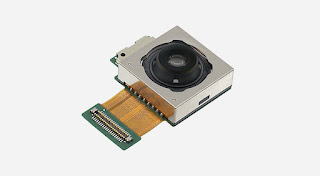Camera Module Market to Witness an Outstanding Growth by 2028
Camera module are electronic devices that use an image sensor to transform an optical signal into a digital electronic signal and display acquired images on a display device. This market is divided into two groups based on the image sensor technology used in camera module packaging: CMOS (Complementary Metal Oxide Semiconductor) camera modules and CCD (Charge Coupled Device) camera modules.
The global camera module market is estimated to be valued at US$ 58,390.9 million in 2021 and is expected to exhibit a CAGR of 15.2 % over the forecast period (2021-2028).
Major market participants' increased investment could create significant growth potential. In order to grow their market position, key industry players are focusing on investment. For example, Foxconn Technology Co. Ltd. invested US$ 26 million in Wcube Co. Ltd., a camera lens and module provider and a subsidiary of Hon Hai Precision Industry Co. Ltd., in July 2011. LG Innotek Company Ltd invested US$ 260 million on camera modules in February 2012 to enhance its supply capability. LG Innotek Company Ltd also invested US$ 400 million in 2011 to improve its main business, which comprised the production and sale of camera modules.
Request For Sample Copy: https://www.coherentmarketinsights.com/insight/request-sample/4787
Key players operating in the global camera module market are Sunny Optical Technology Group Co. Ltd., Foxconn Technology Co. Ltd., STMicroelectronics N.V., OmniVision Technologies Inc., Chicony Electronics Co. Ltd., Sharp Corporation, LG Innotek Company Ltd, Partron Co. Ltd., Lite-On Technology Corp., LuxVisions Innovation, and Samsung Electro-Mechanics Co. Ltd.
Over the forecast period, technological advancements in camera module components are expected to boost the worldwide camera module market forward. In the recent past, camera modules have seen major technological breakthroughs. In reality, key industry participants are investing heavily in the development of new technological advances.
During the COVID-19 epidemic, the worldwide camera module industry saw a significant drop. As a result of numerous countries temporarily closing their international borders and restricting travel, camera module sales have plummeted. Furthermore, camera module manufacturing was greatly hampered by strict physical distance requirements and statewide lockdown policies that hampered industrial activity around the world. China is one of the most important suppliers of raw materials for camera module manufacturing. It was, however, the epicentre of the outbreak that had a substantial impact on market growth. However, several nations have begun to reduce rules in order to facilitate the introduction of vaccines and mass immunisation campaigns, which might help the market grow.


Comments
Post a Comment